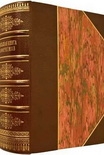The Revelations by Erik Hoel (some good books to read TXT) 📗

- Author: Erik Hoel
Book online «The Revelations by Erik Hoel (some good books to read TXT) 📗». Author Erik Hoel
Comparatively, Mike likes to imagine that Kierk would have dropped out of Harvard. In his mental rant he’d say—You know next to someone like John von Neumann, you would have been nothing, a gnat, let’s see how you feel when measured up against someone who was really a genius . . . but then the imaginary Kierk, whispering back at him, grinning like the Cheshire Cat—Ah, but there aren’t any John von Neumanns anymore, are there? There’s just me, now why is that? Kierk, now raving against him—And whose idea was it to ensure maximum destruction by dropping the bomb kilometers above Nagasaki? See, I like geniuses who only destroy themselves. You know you’ll win in the end, Mike, I’ll self-cannibalize, and the last thing to disappear will be my smile . . .
Mike finishes the last of his soda with a gulp, looks around to make sure he’s alone, then angrily crushes the can and drops it into a nearby recycling bin.
THURSDAY
Kierk wakes up and immediately knows that this day will be a dance with the noonday demon. He had felt it building yesterday, in his discontentment and restlessness. This has all happened before. Like the first organism crawling onto mud and into air from the sea, he attempts to make it to the bathroom. On the way he gives up and lies splayed out in the center of the room, examining the grain of the carpet. When it hits Kierk like this it’s just something he wakes up, not an exogenous force but rather (and this is much worse) completely internal. He tells himself that is what happens when he turns his intelligence inward, like a microscope warping back around to examine itself, seeing without the gauze of delusion—and what a fucking pathetic mess he is. Some small metacognitive part of him knows that this will pass. But right now he cannot see how one can make only finite moves when bookended by infinities in both directions—Dante would not even let me into hell, I without fame or infamy, no, I would contribute only to the howling gale of the angels who remained undecided.
Forcing himself to stand, he takes a hot, steamy shower in the complete dark. With the glass shower door shut from the outside, it is shaped like a sarcophagus. He sits with his legs drawn up and begins to sob, his chest shuddering for air, a few burbling gasps, but no tears come. One hand comes up and with a vicious slap of impact rocks his head back against the slick wall. Around him in the dark, a crowd of ghosts stand. They were also the ones who slaved and obsessed, but for them there was never the chance encounter, the lucky break—the Kants never woken from their dogmatic slumber, the Wittgensteins without a Russell, the William Jameses without a brother to compete with, Darwins without John Henslow, Matisses without Stein, Wolfes without Perkins, Carvers without Lish, Eliots without Pound, all of the poor, poor dreaming patent clerks—the faceless ghosts stretch out into the steam, a nameless legion standing over Kierk, severe of countenance, dressed in all clothing and all manners from antiquity to the present, ready to embrace him like an army from Hades. Silent of judgment, they merely watch him sitting there with his legs drawn as he speaks a mantra with water running over his lips—“I am twenty-seven and I have done nothing with my life. I am twenty-seven and I have done nothing with my life.”
Two years ago during a hot summer in Madison, Wisconsin, Kierk had developed a swollen lymph node in his neck. Concerned about lymphoma, a series of tests had revealed nothing, but the ENT doctor had strongly suggested removing Kierk’s tonsils. A week into the healing process, Kierk, clad only in his boxers, standing in front of the sink getting a glass of water before bed, had felt something give in, cave away, at the cauterization in the back of his throat. And blood had come fountaining up, forcefully spurting from deep in his throat against the mirror in front of him, and he, thoughts wild, had rushed downstairs, trying to gurgle to his roommates to call 911, but the two had just stared at him in frozen shock until Kierk had dialed himself and spoke through the gurgling stream. Blood trailing behind him, he had made his way downstairs and outside into the hot summer night. The dark street was lined with quiet houses and there was a warm breeze. A roommate of his called to him from the steps, but Kierk, his naked chest covered in blood, stood in his boxers alone in the street. With every beat of Kierk’s heart there was the high-pressure squirt of blood, a hiss from the back of his throat, and he forced himself to calm his heartbeat, to be unafraid, to confront the paradox here—the more I react to the current situation, the more afraid I become, the faster my own heartbeat will kill me. He thought of Keats, who in his medical training knew that the telltale drops of bright arterial blood after his cough were a sign of consumption, that there was a fatal flaw within himself, that something had cracked and could not ever be repaired, and that





Comments (0)